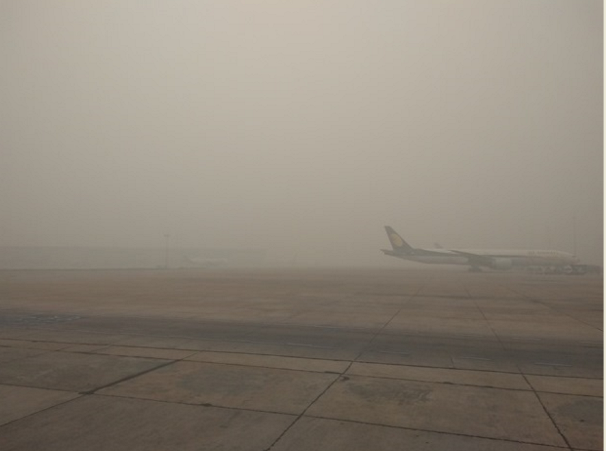India: Various initiatives on mitigation of Air Pollution
The government is making all efforts for the mitigation of air pollution in the country. Central Government has taken a number of regulatory measures for prevention, control and abatement of air pollution in the country as reported by PIB.

Action Plans for Improvement of Air Quality
The Central Government has launched National Clean Air Programme (NCAP) under the Central Sector “Control of Pollution” Scheme as a long-term, time-bound, national-level strategy to tackle the air pollution problem across the country in a comprehensive manner with targets to achieve 20 % to 30 % reduction in PM10 and PM2.5 concentrations by 2024 keeping 2017 as the base year for the comparison of concentration.102 non-attainment cities mostly in Indo-Gangetic Plains have been identified based on ambient air quality data for the period 2011 – 2015 and WHO report 2014/2018. The city-specific Action Plans have been approved for all 102 non-attainment cities for implementation on the ground.
The Central Government has notified a Comprehensive Action Plan (CAP) in 2018 identifying timelines and implementing agencies for actions identified for prevention, control and mitigation of air pollution in Delhi and NCR.
Graded Response Action Plan (GRAP) was notified on January 12, 2017, for prevention, control and abatement of air pollution in Delhi and NCR. It identifies graded measures and implementing agencies for a response to four AQI categories, namely, Moderate to Poor, Very Poor, Severe and Severe + or Emergency.
(b) Several steps have been taken for creating awareness amongst the general population. These steps are as follows.
SAMEER app has been launched wherein air quality information is available to public along with provision for registering complaints against air polluting activities.
Air quality information collection and dissemination are done from a centralized location. It provides real time air quality status to all stakeholders.
A dedicated media corner, Twitter and Facebook accounts have been created for access to air quality-related information and to provide a platform for lodging complaints by the general population.
Crowdsourcing of innovative ideas/ suggestions/proposals from the public is done through CPCB website to strengthen efforts for improving air quality in Delhi-NCR.
The Ministry of Environment, Forest and Climate Change is implementing Environment Education, Awareness and Training Scheme with the objective to promote environmental awareness among all sections of the society and to mobilize people’s participation for conservation of environment. Under the National Green Corps (NGC) programme of the Ministry, about one lakh schools have been identified as Eco-clubs, wherein, nearly thirty lakh students are actively participating in various environmental protection and conservation activities, including the issues related to the air pollution.
Ministry is promoting people’s participation and awareness building among citizens for environmental conservation that focus on the promotion of cycling, saving water and electricity, growing trees, proper maintenance of vehicles, following of lane discipline and reducing congestion on roads by carpooling, etc.
For field feedback on air polluting activities in Delhi and major NCR towns, 46 teams of Central Pollution Control Board have been deployed since October 7, 2019.
The initiatives taken by the Government for the abatement and control of air pollution in Delhi and NCR since 2016 have bore good results. As per Continuous Ambient Air Quality Monitoring Stations (CAAQMS) data, the number of ‘Good’, ‘Satisfactory’, and ‘Moderate’ days has progressively increased to 159 in 2018, as compared to 152 in 2017 and 106 in 2016, and the number of ‘Poor’, ‘Very Poor’ and ‘Severe’ days has reduced to 206, compared to 213 in 2017 and 246 in 2016. In Delhi, reduction in PM2.5 levels in 2018 is 7.3% over 2017 and 14.8% over 2016. In Delhi, reduction in PM10 levels in 2018 is 8.6% over 2017 and 16.5% over 2016.
There is an overall improvement in the air quality of Delhi in 2019 (From Jan 2019 – 18th November, 2019) successively since 2016. The number of ‘Good’ to ‘Moderate’ days increased to 175 in 2019, as compared to 158 in 2018, and the number of ‘Poor’ to ‘Severe’ days reduced to 147, compared to 164 in 2018.

